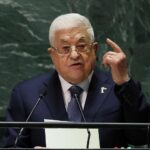The Martial Law period in which 3,200 were killed, 34,000 were tortured, and 70,000 were imprisoned has been dubbed a dark chapter in history.
According to JP Soriano’s special report on “24 Oras,” 51 years after then President Ferdinand Marcos Sr. declared Martial Law, there are now moves to replace the term “diktadurang Marcos” from the school curriculum with just “diktadura.”
The Armed Forces of the Philippines is also pushing for the inclusion of the economic benefits of Martial Law in the curriculums of both in the basic education and higher education.
“Ano ang naging benefits ng Martial Law ng diktador na si Marcos Sr. sa ating bansa?” Kabataan party-list Rep. Raoul Manuel said in the plenary during the deliberation of the budget of the Department of National Defense.
“The hope of the department is to present a balanced view. It is also imperative Mr. Speaker that the youth of today will be informed of what happened in that past,” said the DND’s budget sponsor Rep. Mercedes Alvarez.
“Pagdating sa mga ganito, it’s an expertise thing eh,” said Vice President Sara Duterte, the Secretary of Education.
“So kapag curriculum ang pinag uusapan kailangan nating sundin ang curriculum and teaching strand at respetuhin kung ano yung sa tingin nila kung ano ang pinaka tama at pinaka appropriate na ituro para sa ating mga estudynte,” she added.
Victims of human rights violations have opposed the proposed changes on how Martial Law should be taught.
“ Don’t you dare sabi ko ng ganu’n change and remove the name Marcos from the dictatorship,” said Loretta Ann Rosales, a victim of human rights violation under Martial Law,
“Hindi nila dapat makalimutan ang kototohanan there should not be any distortion of truth and it should be evidence based,” she added.
Rosales was arrested in 1976. She was incracerated, tortured, and electrocuted for a month.
The Bantayog ng mga Batani Museum was established to remind Filipinos of the Philippines under Martial Law.
“We’re dealing with facts here, we’re dealing with historical truths,”said Susan Macabuag, in-charge of the Bantayog museum.
The Martial Law Museum mandated under a law passed in 2013 is also underway.
“What are the facts? there were gross human rights violations during the marcos martial law period from 1972 to 1986,” saud Carmelo Victor Crisanto, executive director of the HRVVMC.
GMA Integrated News sought comment from Malacañang but was told it didn’t have any on the occasion of the Martial Law anniversary.
During the deliberations on the budget of the Presidential Communications Office in the House of Representatives, Albay Rep. Edcel Lagman asked if the PCO had a statement on the Martial Law anniversary.
Budget sponsor Marikina Rep. Stella Quimbo indicated that Malacañang didn’t have any statement on the anniversary that PCO would communicate.
“The ominous silence of the President on the 51st anniversary of his father’s declaration of Martial Law is both deafening and revealing,” Lagman said.
“It would appear that President Marcos, Jr. refuses to acknowledge the very huge elephant in the room: the repression, oppression and profligacy during the Marcos Martial Law regime,” he added.
Lagman then asked PCO, through Quimbo, “there can be no forgiveness without remorse and repentance from the surviving Martial Law implementors, perpetrators and beneficiaries. Would you agree with that statement?”
Quimbo paused and replied, “Yes.” —with a report from Llanesca T. Panti/NB, GMA Integrated News



